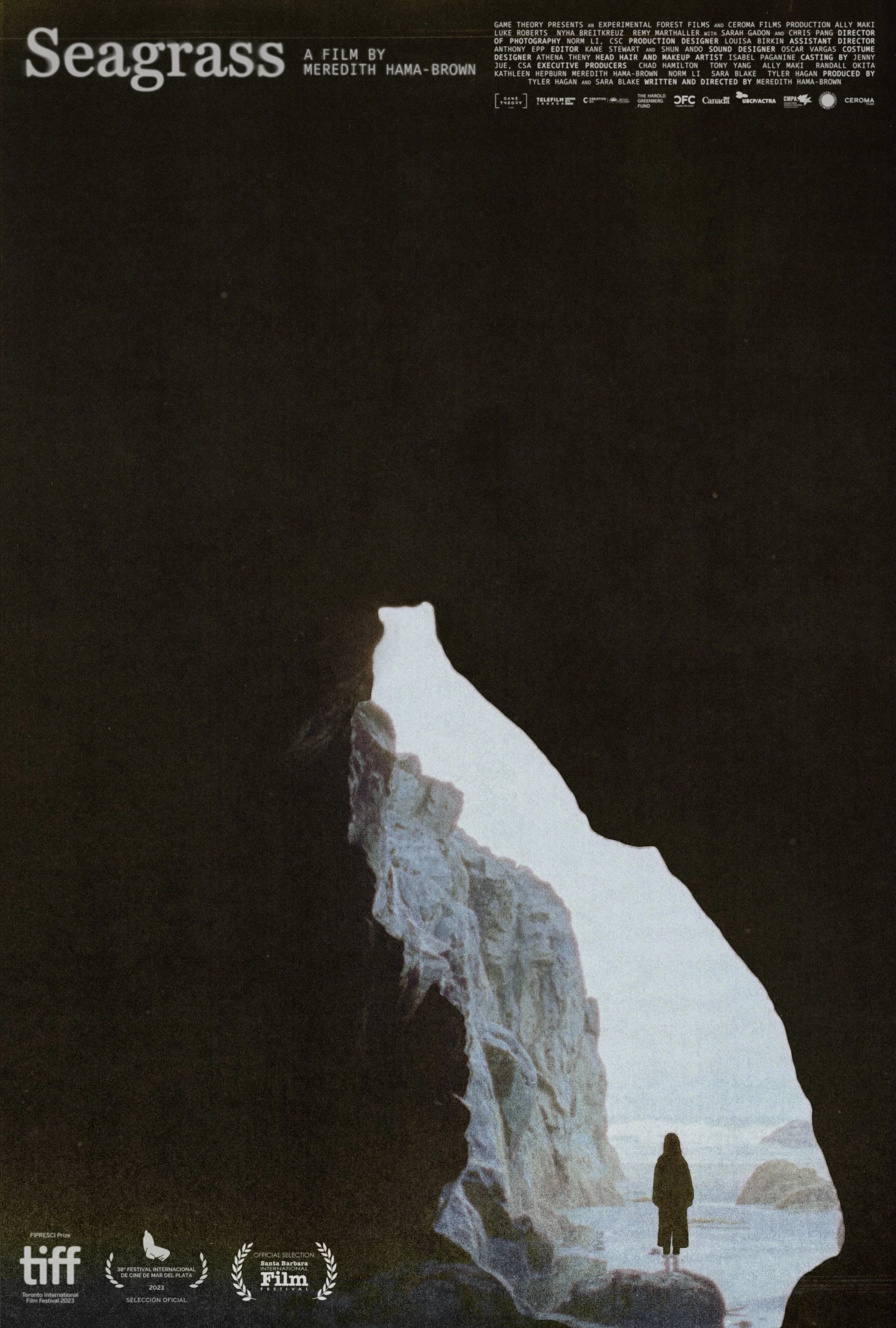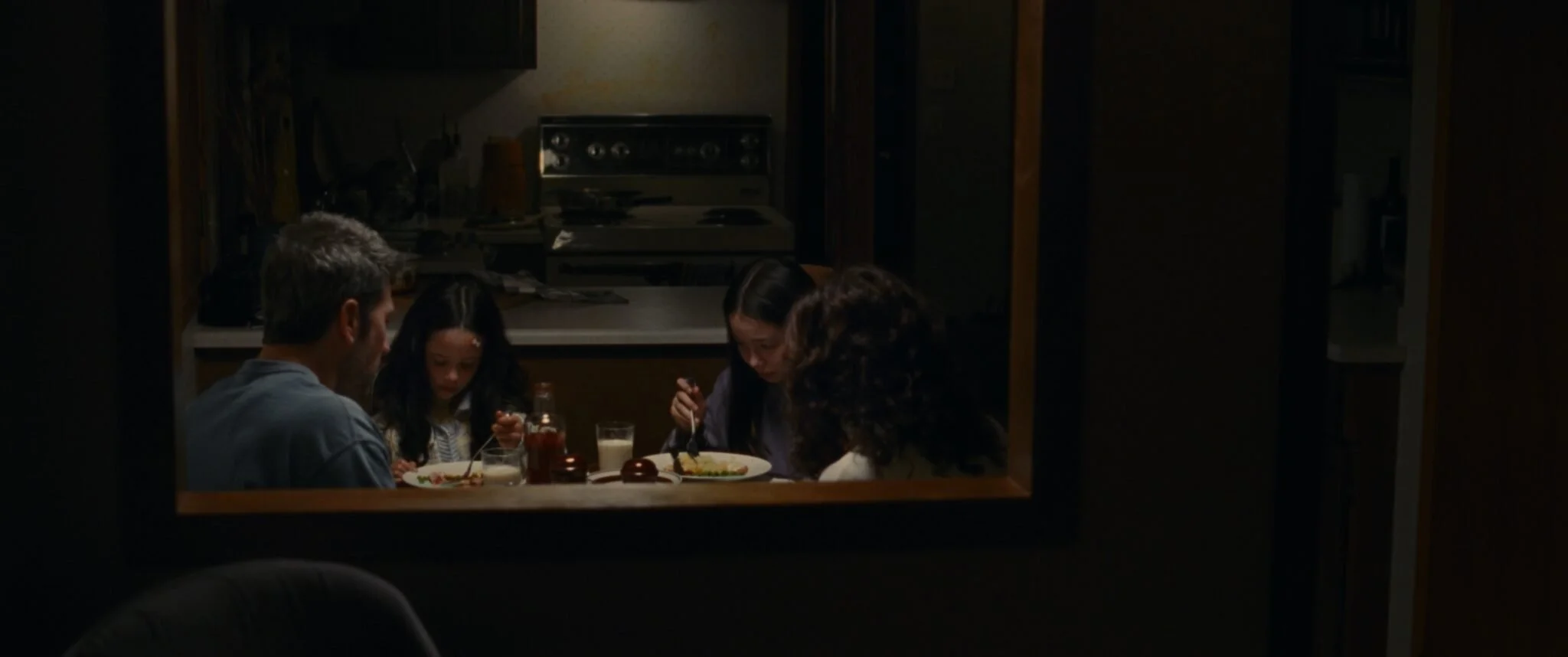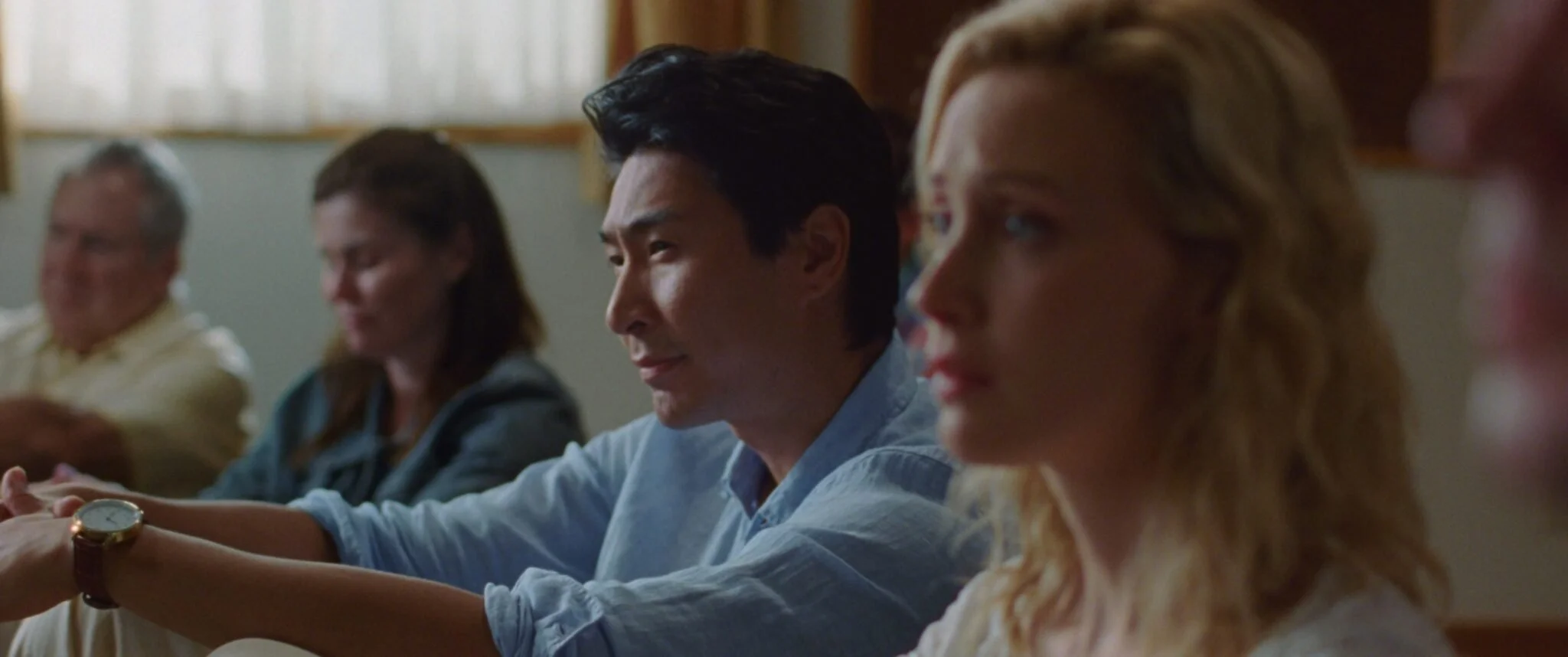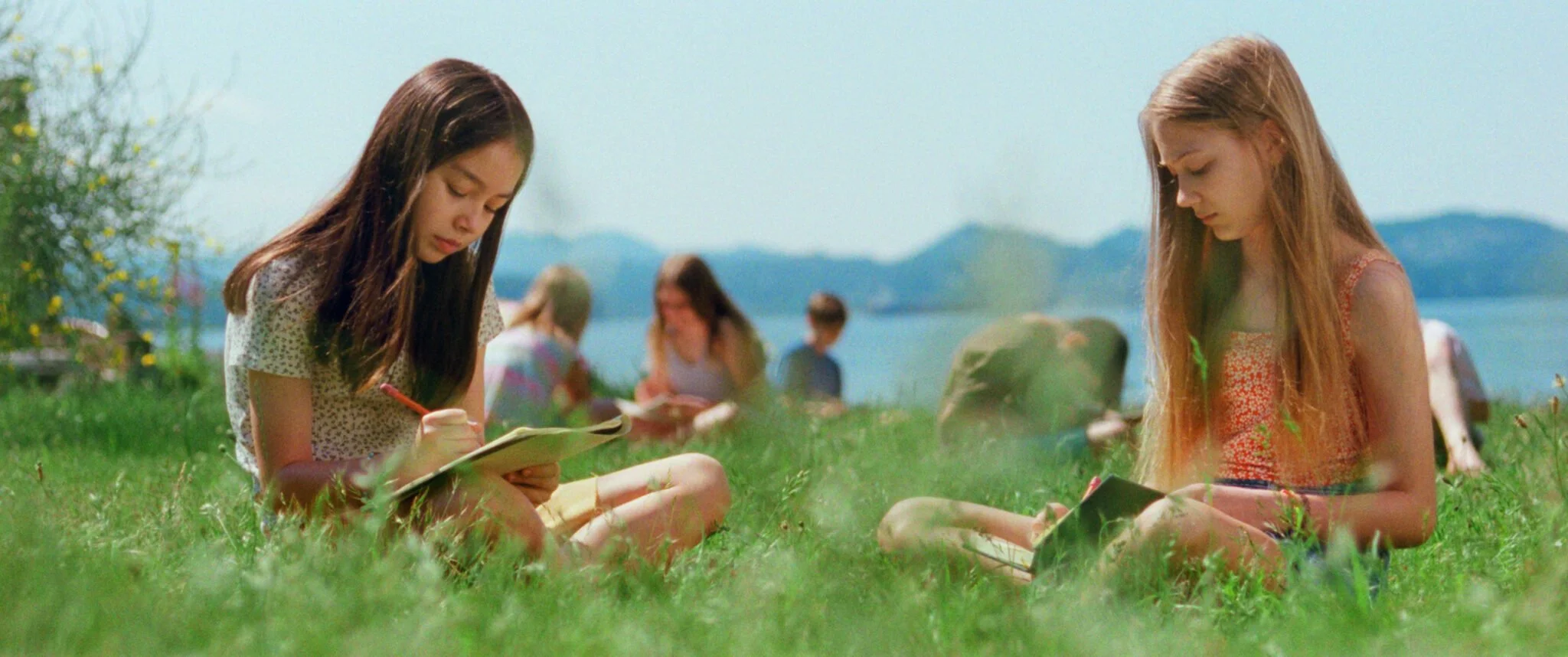‘Seagrass’ Explores the Depths of Japanese Canadian Identity
Writer/director Meredith Hama-Brown‘s first feature explores themes of isolation, identity and the legacy of Japanese internment in Canada.
A still from Seagrass. Supplied photo.
The new film Seagrass, is, on its surface, a family drama about divorce. But for writer/director Meredith Hama-Brown, this is just the way into exploring themes of isolation, identity and the legacy of Japanese internment in Canada.
Set sometime in the ‘90s, in a family resort on an island off the coast of British Columbia, Seagrass follows a biracial family’s fissures. There, the parents Judith (Shortcoming’s Ally Maki) and Steve (Luke Roberts) are working through the problems in their marriage through group couples’ therapy. Judith, in particular, is lost at sea: her mother recently passed, and her death is bringing up questions and reflections on her Japanese identity. Their two daughters, six-year-old Emmy (Remy Marthaller) and 11-year-old Stephanie (Nyha Breitkreuz), are set loose with the other kids at the resort. While Emmy is convinced that the family is haunted by her late grandmother, Stephanie is falling in with a rebellious crowd.
While it’s the perfect setting for a story that looks deeply at family relationships, Hama-Brown says that she didn’t want to limit her story to the family. “I didn’t necessarily want to explore the question of whether or not the couple would stay together or not,” Hama-Brown says. “I was interested in how this event [Judith’s mother’s death] ruptures the foundation of each of the three female characters.”
For Judith, her mother’s death unlocked a trove of unresolved intergenerational trauma stemming from her family’s internment during the Second World War.
A still from Seagrass. Supplied photo.
Between 1942 and 1949, the Canadian government forcibly relocated and incarcerated over 22,000 Japanese Canadians from British Columbia. They were forced to move away from the coast, where many had lived for generations, and moved into interior B.C. And even when the war ended, and they were technically no longer incarcerated, the dispossessed land had been given to returning soldiers, leaving nowhere for Japanese Canadians to live along the coast, even if they returned. Their businesses were also seized by the government, with the assets sold to pay for the detention of the Japanese Canadians.
“They had everything taken away from them, and they could never rebuild their communities,” says Hama-Brown, who’s also Japanese Canadian. “There’s a lot of trauma and shame, and people in my grandma’s generation never talked about what happened in the 1940s, so my mother’s generation… there are a lot of holes missing.”
Remy Marthaller as Emmy in Seagrass. Supplied photo.
In the film, Judith—whose family was interned—is struggling with feeling like she doesn’t know “enough” about her background: she doesn’t speak Japanese, hasn’t visited the country much and doesn’t know a lot about the culture. At the same time, she wants so badly to explore her identity, but her last connection to her Japanese identity, her mother, didn’t share before her death—and now Judith worries it’s too late. Her grief—mourning both her mother and her culture—is what’s causing tension in her marriage. Even as well-meaning as Steve is, he ultimately doesn’t “get it.”
All of this is brought to a head when she and Steve meet another couple, Pat (Crazy Rich Asians‘ Chris Pang) and Carol (Sarah Gadon), another interracial couple who seemingly has it all figured out. Judith is particularly drawn to Pat, who feels comfortable in his Chinese Australian identity. His confidence and assuredness in his identity pokes at all the sore spots in Judith’s feelings about her own Asianness. This tension highlights the specificity of the Japanese Canadian experience, Hama-Brown says. It was important to her to show the nuances between Asian identities, and how “they’re not all the same.”
Chris Pang as Pat and Sarah Gadon as Carol in Seagrass. Supplied photo.
With the daughters’ coming-of-age stories, Hama-Brown says that she wanted to showcase the female experience at three different ages—especially for Asian women. Stephanie, the older daughter, is coming into an awareness that something feels “off,” but she doesn’t have the language yet to understand why it feels wrong when her white friends call her looks “exotic.” Emmy, the younger daughter, is experiencing grief and family strife, and feels her grandmother’s ghostly presence everywhere—a manifestation of how the past follows us around.
While Hama-Brown wants to make it clear that Seagrass is a wholly fictional story and isn’t based on her experiences, “the dad is the polar opposite of my dad, we never went on a family retreat,” she says, the writer/director says she drew on her family history and her Japanese Canadian heritage. And the resulting film is a haunting deep dive into inherited trauma and how the past comes back to haunt those in the present.
A still from Seagrass. Supplied photo.
Seagrass, which had its world premiere at this year’s Toronto International Film Festival and won the prestigious International Federation of Film Critics (the FIPRESCI prize) at TIFF, will be in theatres around Canada and the U.S. starting February 23.






